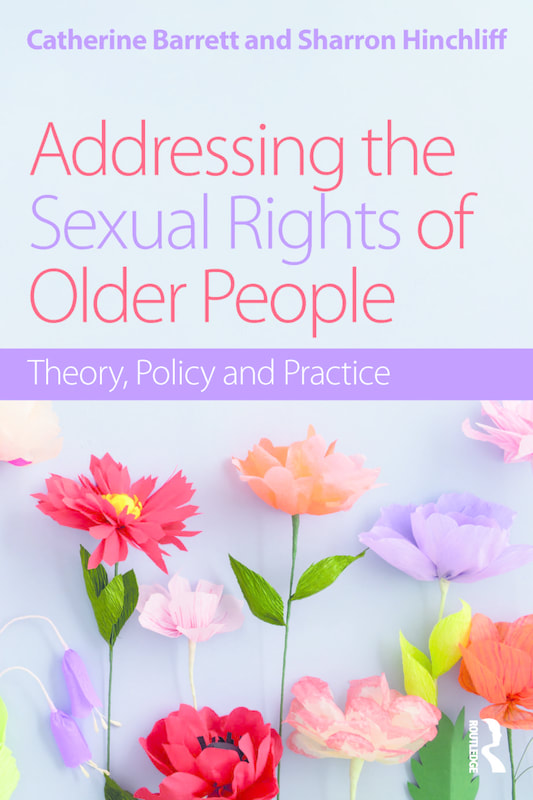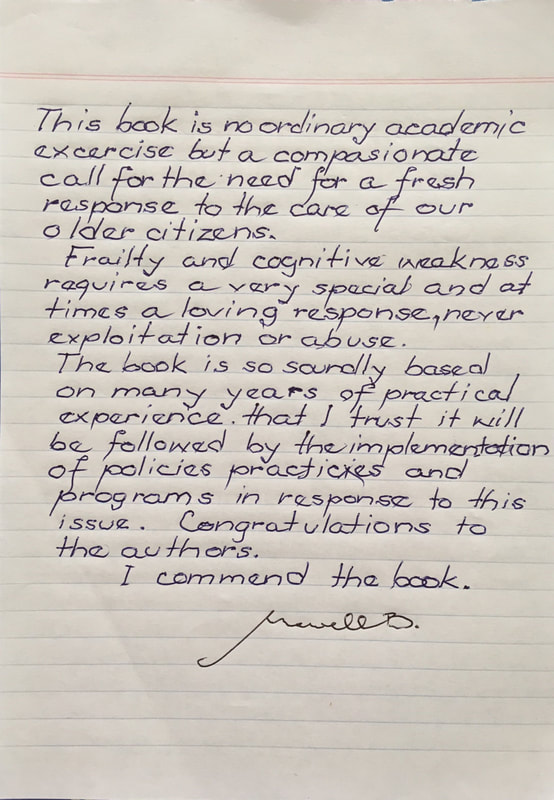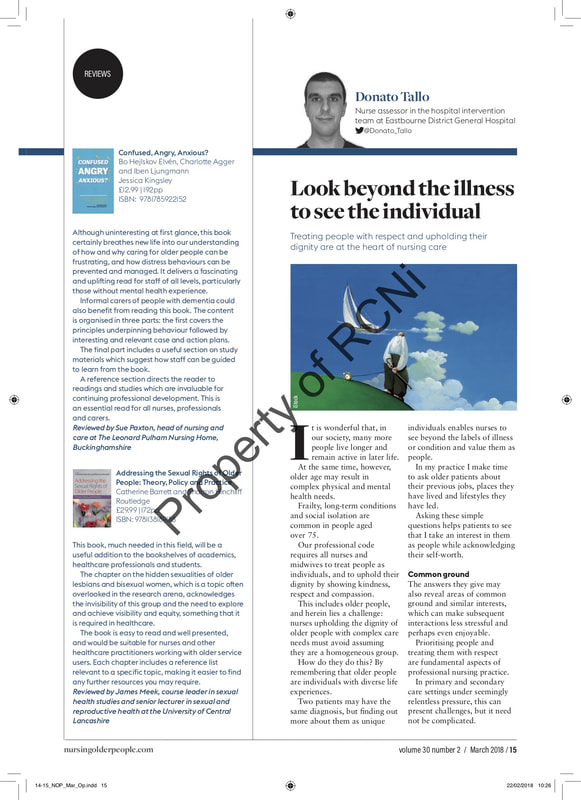The Sexual Rights of Older People
The World Association of Sexual Health (WAS) developed a declaration of sexual rights in 1999. The Declaration makes connections with human rights and emphasizes the empowerment of individuals. It examines sexual health concerns within a human rights framework, with the goals to promote awareness and advocacy of sexual issues and especially to facilitate better education and sexual health services. Despite the broad take up of the Declaration, there has been little recognition of their application to older people. Older people experience sexual inequalities, but little has been documented about the nature of their sexual rights and the key barriers to accessing services they face.
To address the gap, OPAL Institute Director Dr Catherine Barrett and UK academic Dr Sharron Hinchliff edited a book which takes the WAS Declaration of Sexual Rights and applies them to the lives of older people. It also includes a series of chapters from experts around the globe exploring sexual rights and barriers and enablers to their enactment.
To address the gap, OPAL Institute Director Dr Catherine Barrett and UK academic Dr Sharron Hinchliff edited a book which takes the WAS Declaration of Sexual Rights and applies them to the lives of older people. It also includes a series of chapters from experts around the globe exploring sexual rights and barriers and enablers to their enactment.
Obtain a copy of the book
The book is available through the publishers Routledge or through Amazon and other places in hard back or soft cover and is an important text for academics, health professionals, social professionals, service providers, and policy-makers.
|
1. Introduction to the sexual rights of older people. Sharron Hinchliff and Catherine Barrett 2. Bundles of potential: The sexual rights of older people. Catherine Barrett and Sharron Hinchliff 3. Framing the sexual rights of older heterosexual women: Acknowledging diversity and change. Rachel Thorpe. Bianca Fileborn and Laura Hurd Clarke 4. Older men’s experiences of sexuality and their relevance for sexual rights. Hans Wiggo Kristiansen and Linn Sandberg 5. The hidden sexualities of older lesbians and bisexual women. Sue Westwood and June Lowe 6. Transgender older people: At Sea. far from the sexual rights shore. Loree Cook-Daniels and Michael Munson 7. Intersex ageing and (sexual) rights. Joe Latham and Morgan Holmes 8. Sexual assault of older women: Breaking the silence. Bianca Fileborn. Catherine Barrett and Karen Roberto 9. The challenges in reducing STIs while fulfilling and enhancing the sexual rights of older people. Graham Brown. Anthony Lyons. Sharron Hinchliff and Pauline Crameri 10. Challenging the ‘viagratization’ of heterosexuality and ageing. Catherine Barrett. Emily Wentzell and Rafaella Ferrero Camoletto 11. Older people as cyber-sexual beings: Online and internet dating. Sue Malta and Summer Roberts 12. Conclusion: Moving forward. implementing change. Sharron Hinchliff and Catherine Barrett |
Book reviews
Special thanks to Newell Barrett, the 91 year old father or lead editor Dr Catherine Barrett, for his review of the book. If you would like to share a book review please contact us using the details below.
Declaration of the sexual rights of older people (2018)
This Declaration is an extract from Addressing the Sexual Rights of Older People: Theory, Policy and Practice, 2018. Catherine Barrett and Sharron Hinchliff (eds).
- The right to equality and non-discrimination: Older people have the right to enjoy all the sexual rights set out in this declaration without distinction of any kind, particularly related to age.
- The right to life, liberty and security: older people have the right to life, liberty and security that cannot be arbitrarily threatened, limited or taken away for reasons related to sexuality.
- The right to autonomy and bodily integrity: older people have the right to control and decide freely on matters related to their sexuality and their body. This includes the choices of sexual behaviours, practices, partners and relationships with due regard to the rights of others.
- The right to be free from torture and cruel, inhuman or degrading treatment or punishment: older people have the right to be free from torture and cruel, inhuman or degrading treatment or punishment related to sexuality.
- The right to be free from all forms of violence and coercion: older people have the right to be free from sexuality related violence and coercion.
- The right to privacy: older people have the right to privacy related to sexuality, sexual life and choices regarding their own body and consensual sexual relations and practices without arbitrary interferences and intrusion.
- The right to the highest attainable standard of health including sexual health: older people have the right to the highest attainable level of health and wellbeing in relation to sexuality, including the possibility of pleasurable, satisfying and safe sexual experiences.
- The right to enjoy the benefits of scientific progress and its application: older people have the right to enjoy the benefits of scientific progress and its applications in relation to sexuality and ageing and sexual health.
- The right to information: older people have the right to access to scientifically accurate and understandable information related to sexuality and ageing, sexual health and sexual rights through diverse sources.
- The right to education and the right to comprehensive sexuality education: older people have the right to education and comprehensive sexuality education that is age appropriate and grounded in a positive approach to sexuality, ageing and older people.
- The right to enter, form and dissolve marriage and other similar types of relationships: older people have the right to choose whether or not to marry and to enter freely and with full and free consent into marriage, partnership or other similar relationships.
- The right to freedom of thought, opinion and expression: older people have the right to freedom of thought opinion and expression regarding sexuality and the right to express their own sexuality with due respect to the rights of others.
- The right to freedom of association and peaceful assembly: older people have the right to peacefully organise, associate, assemble, demonstrate and advocate including about sexuality, sexual health and sexual rights.
- The right to participation in public and political life: older people are entitled to an environment that enables active, free and meaningful participation in and contribution to the civil, economic, social, political, and other aspects of human life.
- The right to access to justice, remedies and redress: older people have the right to access justice, remedies, and redress for violations of their sexual rights.




